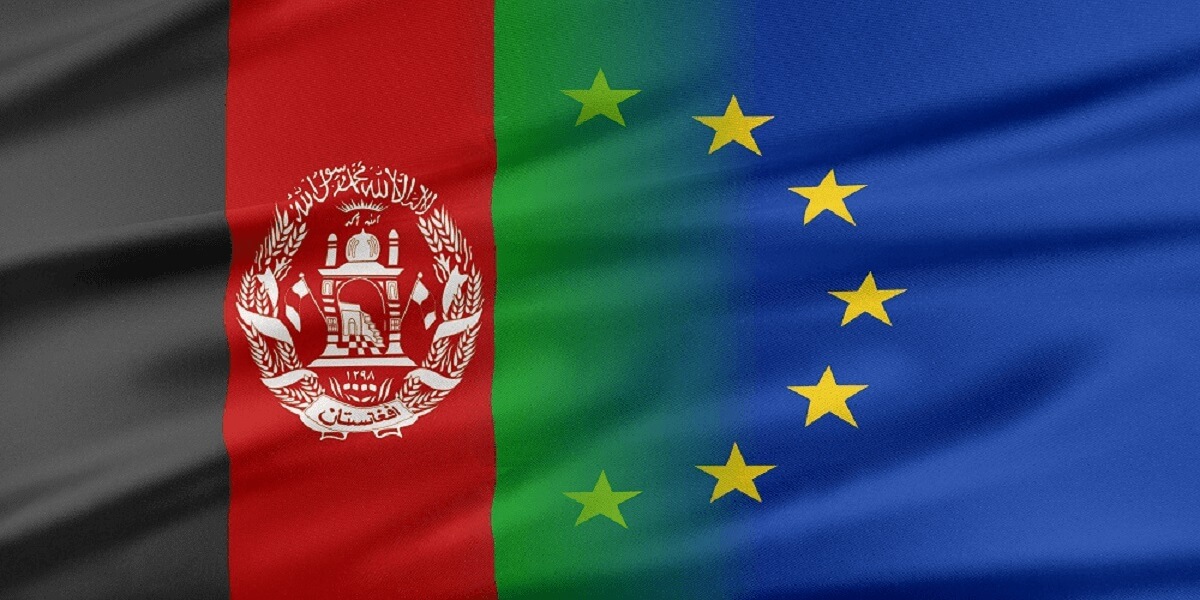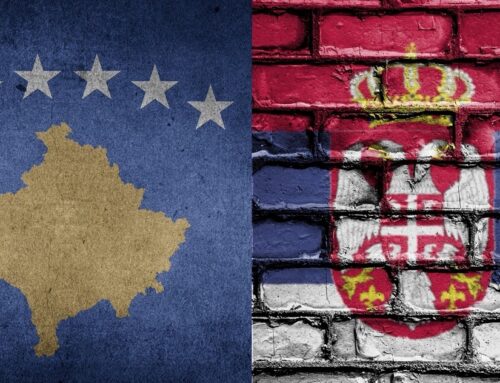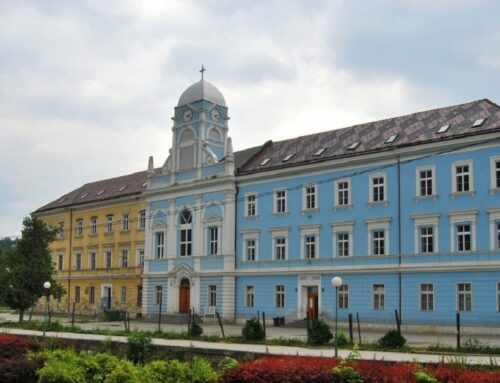The fall of the Afghan government has not only left the country in a state of conflict but has also resulted in a surge of concern regarding the future of migration. European countries along with other NATO countries have promised to fly out their wartime local staff and allies, however, thousands of marginalized and politically vulnerable individuals remain in need of asylum. The political shift in the government followed by an economic and humanitarian crisis has resulted in thousands of Afghans migrating abroad and the worsening of the socio-economic situation will result in an increase in pressure on European countries in the future.
How was the initial response?
The fall of the Afghan government hit the country as well as the world with surprise. In June the US intelligence assessment had predicted that the country would not collapse for another six months, however, this failed to be the case as the Taliban were able to take the capital over in a matter of days.[1] This failure in prediction put NATO and its allies under a lot of pressure to speed up the process of troop withdrawal and make swift decisions on who else would come out.
In the initial response to the fall of the government, many Central-Eastern and Southeastern European countries reacted quickly to the process of withdrawing their troops along with local allies. By the 16th of August Ukraine, Slovakia, and Czechia had already started evacuating their nationals and local staff.[2] Czechia had already evacuated around 100 people which included family members of their Afghan staff too. Poland had announced issuing 45 humanitarian visas to Afghan staff and their families.[3] Lithuania had made a commitment to help 115 of their interpreters and translators and Albania had made a large commitment of taking in 2,000 Afghan nationals.[4] North Macedonia had offered refuge to over 100 Afghan citizens by the end of August and expected to accommodate around 780 Afghans; the Prime Minister offered to increase that amount to 1800 if needed.[5] Albania and Kosovo, as well as many other states in Central-Eastern and Southeastern Europe, had also accepted to temporarily host Afghans that were seeking entry to the US.[6]
In contrast to these Central-Eastern and Southeastern European countries, Austria and other European states took a tougher stance on the matter and opposed taking in more refugees and even stated to continue its policy of deportation of previously rejected asylum seekers.[7] The interior minister of Austria, Karl Nehammer, claimed that deciding to stop the deportation would only worsen the situation and fuel future illegal migration and the business of smugglers.[8]
Changing attitude
The initial reflex of many European countries was to take their citizens and local allies out and many succeeded to do so but NATO and its European allies are now facing a moral dilemma of what will happen to the remaining local staff, allies, and vulnerable groups in Afghanistan. Many countries since the withdrawal of troops and key individuals have taken a tougher stance on the issue. A month following the fall the Prime Minister of Czechia, Andrej Babiš, stated that there was “no place for Afghan refugees in Europe”.[9] The Prime Minister claimed there are other methods to helping Afghan refugees such as funding other countries to host them but the best option according to him would be to find a solution that would allow Afghans to “stay in Afghanistan”.[10] Many Central-Eastern and Southeastern European countries have already taken a common stance on not accepting new arrivals of Afghan refugees. Slovenia’s foreign minister had even reportedly warned against the possibility of terrorist attacks on Europe[11] and tweeted that it was not the duty of the EU or Slovenia to help everyone that is fleeing instead of fighting for their homeland.[12] Many NATO allies and European countries stopped accepting refugees after the first few rounds of evacuations of their local partners and staff. Once they had taken out the people that had helped them with their mission in Afghanistan, they proceeded to turn to stricter immigration policies.
This growing rejection towards immigration has been intensified by the fear of repeating the 2015 refugee crisis. The 2015 refugee crisis, terror attacks, and the rise of internal social problems in European countries with large populations of immigrants have spread a wave of anti-immigrant sentiment. Far-right political parties around these European countries are using this situation to their advantage to further their anti-immigration narratives and warn against the possibility of repeating the same mistake as in the past and putting more pressure on a tougher immigration stance.[13]
The future of the migration problem
The effects of the 2015 refugee crisis have created a skeptical view of immigration in and around Europe and have motivated the EU to figure out new and alternative mechanisms to counter the issue of migration. Although Afghanistan’s neighboring countries have closed their borders and the Taliban have made it harder for people to leave, the issue of Afghan refugees is not over yet. The issue may continue to worsen especially when borders and travel routes open again, and refugees will be forced to take more dangerous routes out of the country. The EU has not yet made an EU-wide migration policy, however, following the experience of the refugee crisis in 2015 and the possible implication of the current Afghan crisis the EU along with its European neighboring countries will have to put forward an initiative on how to deal with the future of the Afghan refugee crisis.
One initiative taken by the EU to stop the migration crisis is to work with Afghanistan’s neighboring countries and provide them with funding to host refugees or provide humanitarian aid to Afghanistan. This initiative aims to keep the conflict restricted in the region and stop the influx of people into the continent.[14] Another solution brought up by the EU foreign policy chief, Josep Borell, after the Afghan refugee crisis was to bring back a directive from 2001 that had never been used. The directive is known as the Temporary Protection Directive which was drafted after the surge in migrants from Yugoslavia and Kosovo but the mechanism of it had never been activated.[15] The directive grants immediate but temporary protection to displaced people from non-EU countries and it is intended to be used when the traditional asylum system is under too much pressure from a mass influx of refugees.[16] The standard duration of the temporary protection is a year; however, it can be extended twice for six months making it last up to two years. This protection period can be further extended by the council if displacement reasons are still present.[17]
Although these are all possible methods to counter the issue of migration and refugees, they only provide a short-term solution to the conflict and do not solve the issue in the long-term. Only providing short-term protection or humanitarian aid does not help protect vulnerable groups and individuals in Afghanistan from human rights abuse. The neglect of the Afghan crisis undermines the core values on which the EU and its ally countries operate. If the EU seeks to uphold those values, it will have to come up with a more harmonized and unified policy stance on Immigration to which it will have to integrate its EU member and non-EU member Central-Eastern and Southeastern European countries. Central-Eastern and Southeastern European countries are often travel routes into central and western EU countries for migrants. Therefore, it is important for the EU to integrate both EU and non-EU Central-Eastern and southeastern European countries to find a better and effective solution to the possible crisis.
Bibliography
“’No Place for Afghan Refugees in Europe,’ Says Czech PM Babiš.” euronews, September 8, 2021. https://www.euronews.com/2021/09/08/no-place-for-afghan-refugees-in-europe-says-czech-pm-babis.
“Could the EU Use an Old, Obscure Law to Manage a New Refugee Influx?” euronews, August 25, 2021. https://www.euronews.com/2021/08/23/could-the-eu-use-an-old-obscure-law-to-manage-a-new-refugee-influx-from-afghanistan.
“Eu Agrees to Rely on Afghanistan’s Neighbours to Avoid Migrant Crisis.” euronews, August 31, 2021. https://www.euronews.com/2021/08/31/eu-interior-ministers-to-discuss-potential-afghan-migration-crisis.
“Expected Afghan Influx Reopens Divisions over Refugees in Europe.” The Guardian. Guardian News and Media, August 16, 2021. https://www.theguardian.com/world/2021/aug/16/expected-afghan-influx-reopens-divisions-over-refugees-europe.
Lall, Rashmee Roshan. “Despite All the International Attention, Afghan Refugees Are Not Welcome.” Social Europe, September 16, 2021. https://socialeurope.eu/despite-all-the-attention-afghan-refugees-are-not-welcome.
Mamo, Christian, Milana Nikolova, Marek Grzegorczyk, and Nikola Đorđević. “Central and Eastern Europe Scrambles to React to Taliban Victory in Afghanistan.” Emerging Europe, August 17, 2021. https://emerging-europe.com/news/central-and-eastern-europe-scrambles-to-react-to-taliban-victory-in-afghanistan/.
Parrock, Jack. “How Will Europe Decide on Afghan Refugee Policy?” euronews, August 24, 2021. https://www.euronews.com/2021/08/24/how-will-europe-decide-on-afghan-refugee-policy.
Service, RFE/RL’s Balkan. “More than 100 Afghan Citizens Offered Refuge in North Macedonia.” RadioFreeEurope/RadioLiberty. More Than 100 Afghan Citizens Offered Refuge In North Macedonia, August 31, 2021. https://www.rferl.org/a/afghanistan-refugees-skopje-north-macedonia/31437052.html.
[1] Mamo, Christian, Milana Nikolova, Marek Grzegorczyk, and Nikola Đorđević. “Central and Eastern Europe Scrambles to React to Taliban Victory in Afghanistan.” Emerging Europe, August 17, 2021. https://emerging-europe.com/news/central-and-eastern-europe-scrambles-to-react-to-taliban-victory-in-afghanistan/.
[2] Ibid.
[3] Ibid.
[4] Ibid.
[5] Service, RFE/RL’s Balkan. “More than 100 Afghan Citizens Offered Refuge in North Macedonia.” RadioFreeEurope/RadioLiberty. More Than 100 Afghan Citizens Offered Refuge In North Macedonia, August 31, 2021. https://www.rferl.org/a/afghanistan-refugees-skopje-north-macedonia/31437052.html.
[6] “Expected Afghan Influx Reopens Divisions over Refugees in Europe.” The Guardian. Guardian News and Media, August 16, 2021. https://www.theguardian.com/world/2021/aug/16/expected-afghan-influx-reopens-divisions-over-refugees-europe.
[7] Mamo, Christian, Milana Nikolova, Marek Grzegorczyk, and Nikola Đorđević. “Central and Eastern Europe Scrambles to React to Taliban Victory in Afghanistan.” Emerging Europe, August 17, 2021. https://emerging-europe.com/news/central-and-eastern-europe-scrambles-to-react-to-taliban-victory-in-afghanistan/.
[8] Mamo, Christian, Milana Nikolova, Marek Grzegorczyk, and Nikola Đorđević. “Central and Eastern Europe Scrambles to React to Taliban Victory in Afghanistan.” Emerging Europe, August 17, 2021. https://emerging-europe.com/news/central-and-eastern-europe-scrambles-to-react-to-taliban-victory-in-afghanistan/.
[9] “’No Place for Afghan Refugees in Europe,’ Says Czech PM Babiš.” euronews, September 8, 2021. https://www.euronews.com/2021/09/08/no-place-for-afghan-refugees-in-europe-says-czech-pm-babis.
[10] Ibid.
[11] Lall, Rashmee Roshan. “Despite All the International Attention, Afghan Refugees Are Not Welcome.” Social Europe, September 16, 2021. https://socialeurope.eu/despite-all-the-attention-afghan-refugees-are-not-welcome.
[12] Parrock, Jack. “How Will Europe Decide on Afghan Refugee Policy?” euronews, August 24, 2021. https://www.euronews.com/2021/08/24/how-will-europe-decide-on-afghan-refugee-policy.
[13] Lall, Rashmee Roshan. “Despite All the International Attention, Afghan Refugees Are Not Welcome.” Social Europe, September 16, 2021. https://socialeurope.eu/despite-all-the-attention-afghan-refugees-are-not-welcome.
[14] “Eu Agrees to Rely on Afghanistan’s Neighbours to Avoid Migrant Crisis.” euronews, August 31, 2021. https://www.euronews.com/2021/08/31/eu-interior-ministers-to-discuss-potential-afghan-migration-crisis.
[15] “Could the EU Use an Old, Obscure Law to Manage a New Refugee Influx?” euronews, August 25, 2021. https://www.euronews.com/2021/08/23/could-the-eu-use-an-old-obscure-law-to-manage-a-new-refugee-influx-from-afghanistan.
[16] Ibid.
[17] Ibid.





